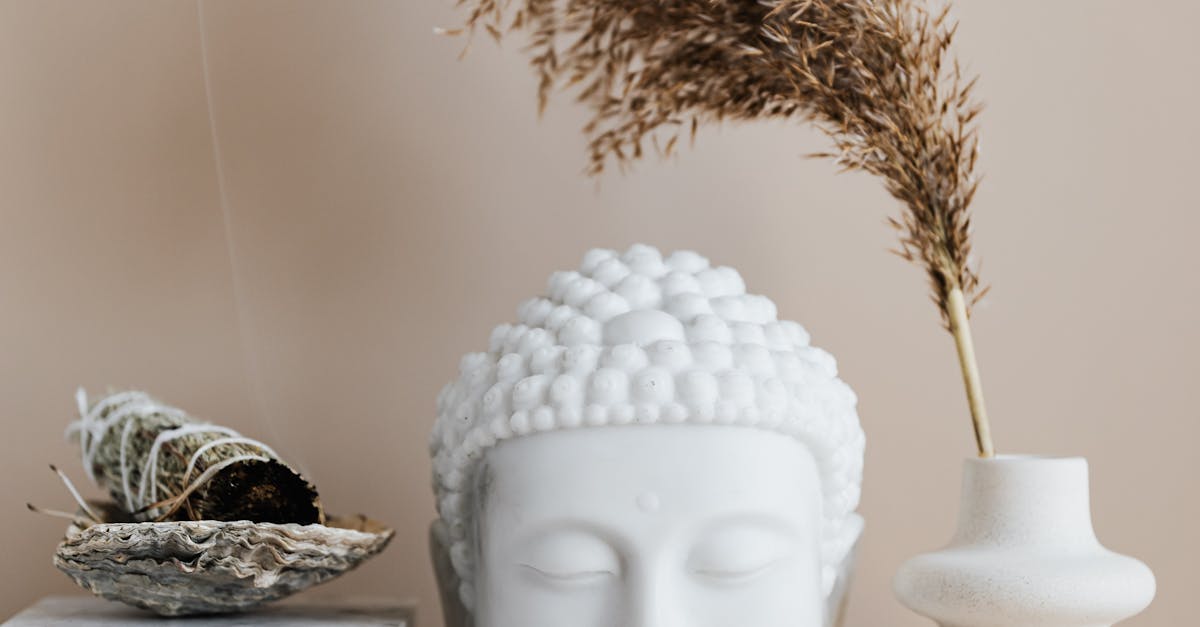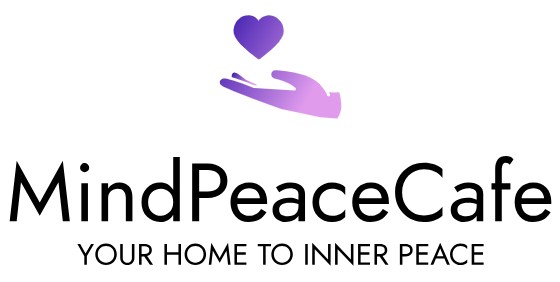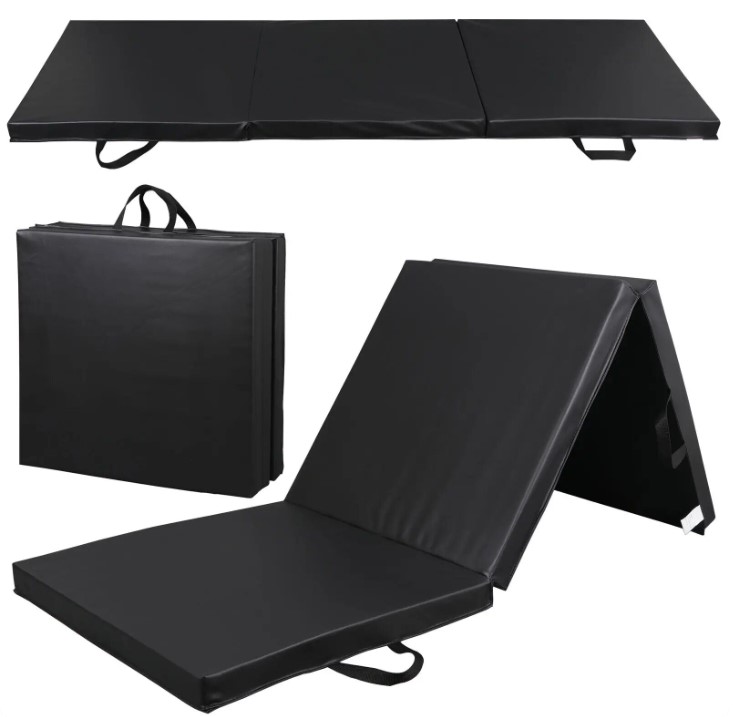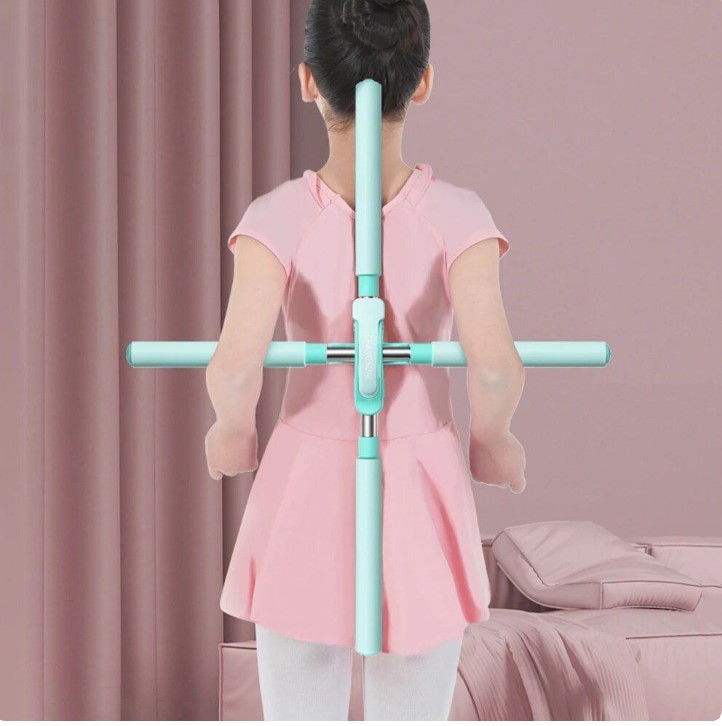Elevating Everyday Serenity: Designing Your Personal Meditation Oasis

Step into tranquility and embark on a journey to create your own serene haven with Zen Den Sanctuary: Creating Your Peaceful Meditation Space. In this guide, we’ll explore the essence of Zen Den sanctuaries, illustrating how a dedicated space for mindfulness and meditation can truly elevate your well-being. Whether you’re a seasoned practitioner or a newcomer to the world of meditation, we’ll walk you through the process of crafting the perfect retreat within your home, fostering an atmosphere of calm and rejuvenation. With thoughtful design, soothing scents, and personalized touches, you’ll learn how to transform a corner of your home into a tranquil oasis that harmonizes body, mind, and spirit.
1. Introduction to the Zen Den Sanctuary
Welcome to the world of Zen Den Sanctuary, where peace and tranquility converge to create a haven for meditation and mindfulness. The concept of a Zen Den is rooted in the idea of having a dedicated space within your home that promotes serenity and inner peace. This sanctuary serves as a retreat from the hustle and bustle of everyday life, offering a space where you can nourish your soul and reconnect with your inner self. By understanding the significance of this sanctuary, you’ll embark on a journey to unlock the potent magic of a personalized meditation space.
A Zen Den is not just a physical location; it’s a state of mind. It’s a place where you can let go of stress, find clarity, and cultivate a deeper sense of self-awareness. Creating such a space allows you to immerse yourself in the practice of mindfulness and meditation, enabling you to tap into a wellspring of calm and focus. This unique zone, designed to foster relaxation and introspection, can become a true refuge—a place where you can seek solace and recharge your spiritual batteries.
Harnessing the power of a dedicated sanctuary for meditation offers a myriad of benefits, both for your mental and emotional well-being. Researchers have found that having a designated space for mindfulness practices can lead to reduced stress levels, heightened clarity of thought, and improved emotional resilience. By integrating the principles of Zen Den into your home, you’ll unlock the potential for transformative self-care, as well as a sanctuary that nurtures your holistic wellness.
What is a Zen Den?
A Zen Den is more than just a physical space—it’s a state of mind manifested in a dedicated sanctuary within your home, designed to foster tranquility and introspection. This oasis of calm represents a sacred place where you can disconnect from the external chaos and connect with your inner peace. Creating a Zen Den involves intentionally curating an environment that encourages mindfulness and meditation, allowing you to engage in a journey of self-exploration and renewal.
This serene enclave is a haven where the noise of the outside world fades, and a sense of serenity prevails. It’s a space where the nuances of decor, subtle fragrances, and the simple act of being are all intertwined to create an atmosphere of profound calm. Beyond the physical layout, a Zen Den embodies a mindset—one that encourages you to let go of stress, focus on the present moment, and cultivate a profound sense of inner peace and balance.
Embracing the concept of a Zen Den elevates the art of mindfulness and meditation by providing an environment specifically tailored to encourage these practices. This dedicated space allows you to immerse yourself fully in the gentle art of self-care and introspection, fostering an environment where you can explore the depths of your being and achieve a harmonious balance between body and mind.
Benefits of a Personal Sanctuary
Having a personal sanctuary tailored for meditation and relaxation offers a wealth of mental and emotional benefits, enriching your life in myriad ways. First and foremost, this dedicated space provides you with a refuge from the demands of daily life, offering an opportunity to unwind, recalibrate, and find inner peace. Amidst the chaos of modern living, having a tranquil space where you can center yourself becomes essential for maintaining your mental well-being and emotional equilibrium.
Furthermore, a personal sanctuary can serve as a catalyst for reducing stress and anxiety. Studies have shown that engaging in mindfulness practices within a dedicated space can lead to decreased levels of cortisol, the stress hormone, contributing to a more relaxed and balanced state of mind. Additionally, the act of creating and spending time in this intentional space can elevate feelings of contentment and joy, enhancing your overall emotional resilience.
Moreover, having a dedicated space for meditation and relaxation encourages a deeper connection with oneself. It provides an opportunity to engage in self-reflection, fostering a heightened sense of self-awareness and promoting emotional clarity. This space becomes a canvas for nurturing your mental and emotional well-being, ultimately leading to a more centered and fulfilled life.
2. Designing Your Meditation Space

Designing your meditation space is a profoundly personal and gratifying endeavor, allowing you to manifest a physical embodiment of calm and tranquility within your home. The process begins with choosing the right location, where you can foster an environment conducive to mindfulness and meditation. Consider spaces with ample natural light, minimal noise, and minimal foot traffic to create an atmosphere of peace and focus. Once you’ve identified the perfect spot, it’s time to infuse it with elements that promote serenity and introspection.
Incorporating aromatherapy diffusers into your meditation space can elevate the ambiance and promote a sense of relaxation. With a variety of essential oils known for their calming properties, you can customize the olfactory experience to enhance your meditation practice. Whether it’s the soothing scent of lavender or the grounding aroma of sandalwood, aromatherapy adds an extra layer of tranquility to your space.
Furthermore, the design elements and decorations you choose play a pivotal role in creating a tranquil Zen-inspired environment. From soft, calming colors to natural materials and minimalistic decor, each element contributes to fostering a space that invites you to unwind and delve into a state of mindfulness. Thoughtful design and intentional layout can transform a corner of your home into a serene oasis that nurtures your well-being and inner peace.
Choosing the Right Location
Choosing the right location for your Zen Den is a crucial step in creating a space that fosters tranquility and focus. Start by considering areas in your home that offer a sense of seclusion and calm. This could be a spare room, a cozy nook by a window, or even a corner of your bedroom that receives ample natural light. The goal is to find a spot where you can retreat and disconnect from the distractions of everyday life, allowing you to immerse yourself fully in moments of contemplation and mindfulness.
Seek out spaces with minimal noise and traffic flow, as these elements can disrupt your meditative practice. Ideally, the chosen location should be free from clutter and design distractions, providing a blank canvas where you can tailor the environment to your personal preferences. Embracing simplicity in this space is key, as it allows you to craft an area that encourages a sense of stillness and mental clarity.
Consider incorporating elements of nature into your chosen space, such as a view of greenery or natural landscapes, as this can further enhance the overall peaceful ambiance. By carefully selecting the right location and infusing it with elements that promote calmness and focus, you’ll be on your way to establishing a sanctuary that supports your mindfulness and meditation practice.
Incorporating Aromatherapy Diffusers
Incorporating aromatherapy diffusers in your meditation space can greatly enhance the ambiance and contribute to a deeper sense of relaxation and well-being. Aromatherapy has been used for centuries as a holistic approach to promoting physical and psychological balance, making it a perfect complement to your mindfulness practice. By diffusing essential oils, you can create an atmosphere that engages your senses, guiding you into a state of calm and tranquility.
Aromatherapy diffusers work by dispersing essential oils into the air, allowing their natural scents to permeate the space. Different oils can evoke various moods and sensations, such as promoting relaxation, boosting mental clarity, or creating a sense of upliftment. For example, the soothing aroma of lavender is renowned for its calming effects, while citrus oils like bergamot can bring a refreshing and energizing vibe. By choosing essential oils that resonate with you, you can tailor the olfactory experience in your meditation space to align with your specific goals and preferences.
Moreover, the practice of using aromatherapy diffusers can also help in purifying the air and eliminating odors, creating a cleaner and more pleasant environment for your meditation and mindfulness sessions. As you breathe in the gentle fragrances, you can immerse yourself in a sensory journey that complements your inner quest for peace and harmony, allowing you to fully embrace the present moment and find solace in your dedicated space.
Essential Elements of Zen Decor
Embracing Zen decor elements is a delightful way to infuse your meditation space with tranquility and serenity. Natural materials such as wood, bamboo, and stone can serve as foundational elements, bringing a sense of grounding and harmony to the space. Incorporating these materials not only adds visual appeal but also fosters a feeling of connection to nature, promoting a deeper sense of peace and balance.
In addition to natural materials, minimalist design plays a central role in creating a tranquil Zen-inspired environment. Clean lines, uncluttered spaces, and simple furnishings all contribute to a sense of order and calm. By paring down the decor to the essentials, you create a space that is free from distraction, allowing you to focus on your practice and inner reflection. Consider integrating multifunctional furniture that serves its purpose without overwhelming the space, promoting a sense of balance and purpose.
Furthermore, incorporating elements of nature into your decor, such as indoor plants or a small water feature, can further enhance the Zen aesthetic of your space. These elements not only contribute to the visual appeal but also bring a touch of vitality and tranquility to the environment. The gentle sound of flowing water or the presence of lush greenery can create a soothing backdrop for your meditation practice, inviting a sense of calm and rejuvenation into your dedicated sanctuary.
3. Aromatherapy Diffusers: The Scent of Serenity
Aromatherapy diffusers offer a delightful way to enhance the ambiance of your meditation space, contributing to a profound sense of peace and relaxation. The practice of using essential oils as part of aromatherapy has been celebrated for its ability to promote emotional well-being and elevate the overall meditation experience. When diffused into the air, essential oils engage your senses, inviting you into a journey of tranquility and inner calm. This sensory stimulation can create an environment that supports mindfulness and aids in centering your thoughts.
The benefits of aromatherapy extend beyond their pleasant fragrances. Various essential oils are known for their unique therapeutic properties, which can influence mood and emotions. For instance, scents like lavender and chamomile are celebrated for their calming effects, while citrus oils such as lemon and orange are recognized for their uplifting and energizing qualities. By selecting oils that resonate with you, you can tailor the olfactory experience in your meditation space to meet your specific needs, whether it’s unwinding after a long day or finding focus during your practice.
Moreover, the gentle diffusion of essential oils can help in purifying the air, creating a cleaner and more inviting space for your meditation and mindfulness routines. As you inhale the natural fragrances, you embark on a sensory journey that complements your inner quest for peace and harmony, allowing you to fully engage in the present moment and find solace in your dedicated sanctuary.
Power of Aromatherapy
The power of aromatherapy lies in its remarkable ability to create a serene and soothing environment, fostering a deep sense of calm and relaxation. Aromatherapy, through the use of essential oils, operates on the principle of engaging the olfactory system to influence mood and emotions. When inhaled, these natural scents can have a profound impact on your mental and emotional well-being, offering a holistic approach to promoting tranquility and inner peace. The therapeutic effects of aromatherapy are rooted in the science of how different scents can stimulate the brain, triggering emotional responses that contribute to a state of well-being and balance.
One of the key aspects of aromatherapy is its capacity to reduce stress and anxiety. Certain essential oils, such as lavender, bergamot, and chamomile, are renowned for their calming properties, helping to alleviate tension and promote relaxation. These scents can act as natural stress relievers, providing a gentle and effective means of unwinding after a long day and finding respite in moments of quiet reflection.
Furthermore, the practice of aromatherapy extends to supporting mental clarity and focus, elements that are integral to a successful meditation practice. Scents like peppermint and eucalyptus are celebrated for their ability to invigorate the mind, sharpen concentration, and awaken the senses. By leveraging the aromatic potential of essential oils, you can create an environment that encourages mental acuity and fosters a heightened awareness, enriching your meditation experience and promoting a more profound connection with your inner self.
Choosing the Right Essential Oils
When it comes to choosing essential oils for your meditation space, several options are celebrated for their calming and soothing properties, ideal for promoting a tranquil atmosphere. Lavender is a popular choice, prized for its gentle floral aroma and well-documented ability to induce relaxation and ease tension. Its versatile nature makes it a perfect companion for unwinding after a long day and settling into moments of peaceful contemplation. Chamomile is another delightful option, known for its sweet and earthy scent, which works wonders in creating a serene environment that facilitates a sense of calm and comfort.
For those seeking to invigorate their senses while maintaining a tranquil ambiance, citrus oils such as bergamot, sweet orange, and lemon are excellent choices. These bright and uplifting scents can elevate the energy of your meditation space, bringing a sense of positivity and refreshment to your practice. Their vibrant aromas can help in boosting the mood and promoting a renewed sense of focus and clarity, ideal for rejuvenating your mind during moments of introspection.
Moreover, the warm and grounding aroma of sandalwood is renowned for its ability to promote a meditative state, making it a valuable addition to your essential oil collection. Its woody and earthy fragrance can deepen your connection to the present moment, fostering a sense of tranquility and inner balance that harmonizes perfectly with your mindfulness practice.
Best Practices for Aromatherapy Diffuser Use
When using aromatherapy diffusers in your Zen Den, it’s essential to know the best practices to maximize their benefits and create an ideal environment for relaxation and mindfulness. First and foremost, always ensure that you follow the manufacturer’s instructions for your specific diffuser model. This typically includes guidelines on the amount of water to use, how many drops of essential oil are recommended, and the duration for which the diffuser should operate. Adhering to these instructions helps ensure the safe and optimal usage of your diffuser.
Additionally, it’s beneficial to experiment with different essential oil blends to find combinations that resonate with you. Try mixing oils known for their calming properties, such as lavender and chamomile, to create a soothing and comforting atmosphere. You can also explore citrus and herbal blends for an uplifting and energizing effect. Pay attention to the intensity of the scent and adjust the number of drops accordingly to achieve the desired aroma without overwhelming the space.
Regular maintenance of your aromatherapy diffuser is vital to ensure its continued efficacy. Clean the device as recommended by the manufacturer to prevent the buildup of residue and maintain optimal diffusion. This includes regular cleaning of the water tank and the internal components. By incorporating these best practices, you can elevate the benefits of aromatherapy in your Zen Den, fostering an environment that supports your meditation and relaxation practices.
4. Personalizing Your Zen Den: Creating a Mindful Retreat
Personalizing your Zen Den is an exciting opportunity to create a space that not only supports your meditation practice but also reflects your unique style and spiritual journey. Begin by infusing the space with elements that resonate with you on a deeply personal level. Whether it’s a favorite piece of art, a cherished memento, or symbols of spiritual significance, incorporating these items can imbue your meditation space with a sense of familiarity and comfort, fostering a deeper connection to your practice.
Consider integrating items that hold personal meaning, such as crystals, prayer beads, or inspirational quotes, to evoke a sense of mindfulness and positivity within your Zen Den. These elements can serve as gentle reminders of your spiritual aspirations, infusing the space with intention and purpose. Furthermore, incorporating elements from nature, such as seashells, feathers, or small potted plants, can bring a touch of the natural world into your meditation space, creating a serene and grounding atmosphere.
Customizing your meditation space also involves creating a layout that supports your practice. Arrange cushions, mats, or seating in a way that promotes comfort and fosters a conducive environment for meditation. By curating a space that reflects your personal journey and aspirations, you’ll not only create a mindful retreat for daily practice but also a sanctuary that nourishes your holistic well-being.
Adding Personal Touches
Adding personal touches to your Zen Den is a wonderful way to infuse your meditation space with elements that resonate deeply with your mindfulness and spiritual journey. Begin by incorporating items that hold personal significance, such as meaningful trinkets, photos of loved ones, or artifacts from memorable experiences. These personal items not only enrich the visual appeal of your space but also create a sense of familiarity and comfort, nurturing a deeper connection to your practice.
Consider integrating elements of inspiration, such as affirmations, quotes, or mantras, that align with your meditation and mindfulness goals. Displaying these uplifting messages within your Zen Den can serve as gentle reminders of your intentions, infusing the space with positive energy and purpose. Additionally, consider incorporating objects from nature, such as seashells, aromatic plants, or small water features, to introduce a grounding and soothing ambiance into your meditation space.
Customizing your meditation space also involves creating a layout that supports your practice. Arrange cushions, mats, or seating in a way that promotes comfort and fosters a conducive environment for meditation. By curating a space that reflects your personal journey and aspirations, you’ll not only create a mindful retreat for daily practice but also a sanctuary that nourishes your holistic well-being.
Maintaining the Space: Tips for Daily Practice
Maintaining a harmonious and conducive environment in your Zen Den is essential for nurturing a consistent and peaceful meditation practice. Begin by establishing a daily routine that incorporates tidying up your space and ensuring that it remains free from clutter. This simple practice can help create a serene and inviting atmosphere for your meditation sessions, allowing you to focus on your practice without distractions. Consider dedicating a few minutes each day to straightening cushions, folding blankets, and organizing any items that may have been displaced.
Another practical tip for daily maintenance involves tending to elements of nature within your Zen Den, such as caring for indoor plants or ensuring that natural light sources are unobstructed. Nurturing the greenery in your space and allowing ample light to filter through not only enhances the visual appeal but also contributes to a refreshing and revitalizing ambiance. Taking a moment to water plants, open window coverings, and let in fresh air can create an environment that promotes a sense of vitality and calm.
Additionally, integrating mindfulness practices into your daily routine can help maintain a peaceful and centered atmosphere in your meditation space. Whether it’s a brief meditation, mindful breathing exercises, or moments of quiet reflection, incorporating these practices into your daily maintenance routine can further enrich the tranquil energy of your Zen Den, fostering a deeper connection to your meditation practice and inner self.
Incorporating Mindfulness Practices
Integrating mindfulness practices into your Zen Den routine can greatly enhance the depth and richness of your meditation experience. Begin by setting aside a few moments before each meditation session for intentional grounding and centering. This can involve gentle stretching, mindful breathing exercises, or a short period of quiet reflection to establish a sense of presence and awareness. By incorporating these practices, you create a seamless transition into your meditation, allowing you to approach the practice with a calm and focused mind.
Consider infusing your Zen Den with mindfulness cues, such as chimes or bells, to demarcate the beginning and end of your meditation sessions. Using these auditory signals can help create a sense of ritual and structure within your practice, providing cues that prompt you to enter a state of mindfulness and signaling the conclusion of your session. Additionally, these cues can serve as gentle reminders to remain present and attuned to the moment throughout your meditation experience.
Furthermore, integrating moments of gratitude and reflection into your routine can promote a deeper sense of mindfulness and appreciation. Taking a few moments at the conclusion of each meditation to express gratitude or contemplate on insights gained during the practice can foster a more profound connection to your experience. By integrating mindfulness practices into your Zen Den routine, you not only create a nurturing space for meditation but also cultivate a deeper awareness and appreciation for your inner journey.
How can I choose the best location for my Zen Den?
When choosing a location for your Zen Den, look for a space in your home that is quiet, free from clutter, and receives ample natural light. Ideally, this location should be conducive to relaxation and introspection, fostering a sense of peace and tranquility. Consider areas with minimal noise and foot traffic to create an environment that supports your meditation practice.
What are some essential elements to include for a tranquil Zen-inspired environment?
Incorporating natural materials such as wood, bamboo, and stone, as well as minimalist design elements, can contribute to a tranquil Zen-inspired environment. Soft, calming colors, uncluttered spaces, and simple furnishings all play a role in creating a space that promotes calm and focus. Additionally, integrating elements of nature into your decor, such as indoor plants or natural light sources, can further enhance the overall peaceful ambiance.
How can I maintain a harmonious atmosphere in my Zen Den for daily practice?
Daily maintenance practices, such as tidying up the space, tending to elements of nature, and integrating mindfulness practices, can help maintain a harmonious atmosphere in your Zen Den. Regular cleaning, organizing, and a routine that includes intentional grounding and centering can foster a conducive environment for peaceful meditation on a daily basis.




